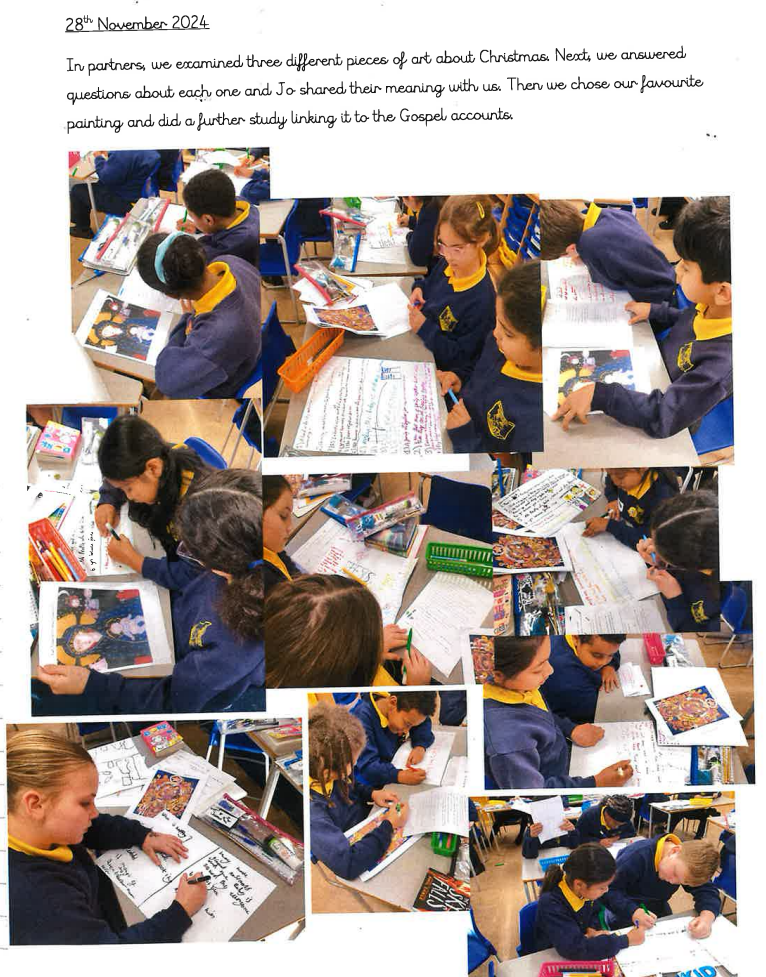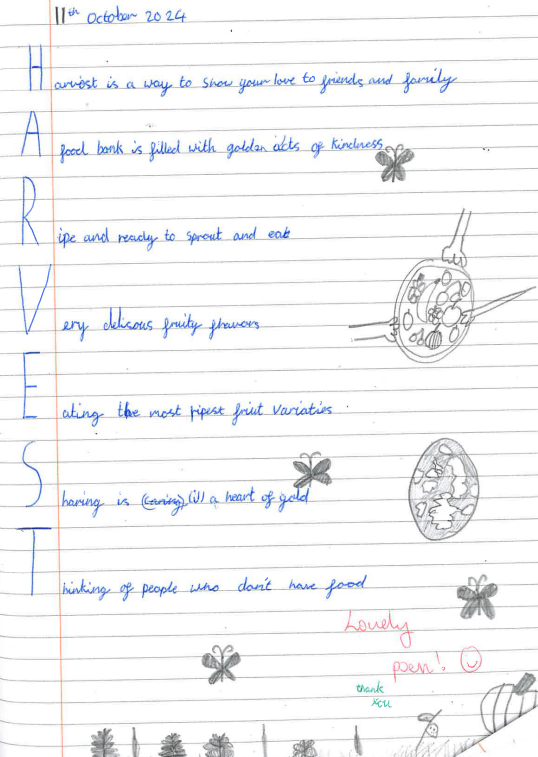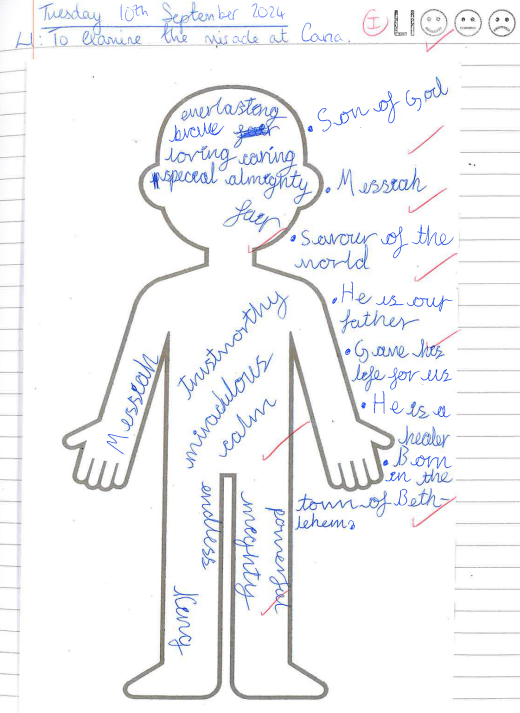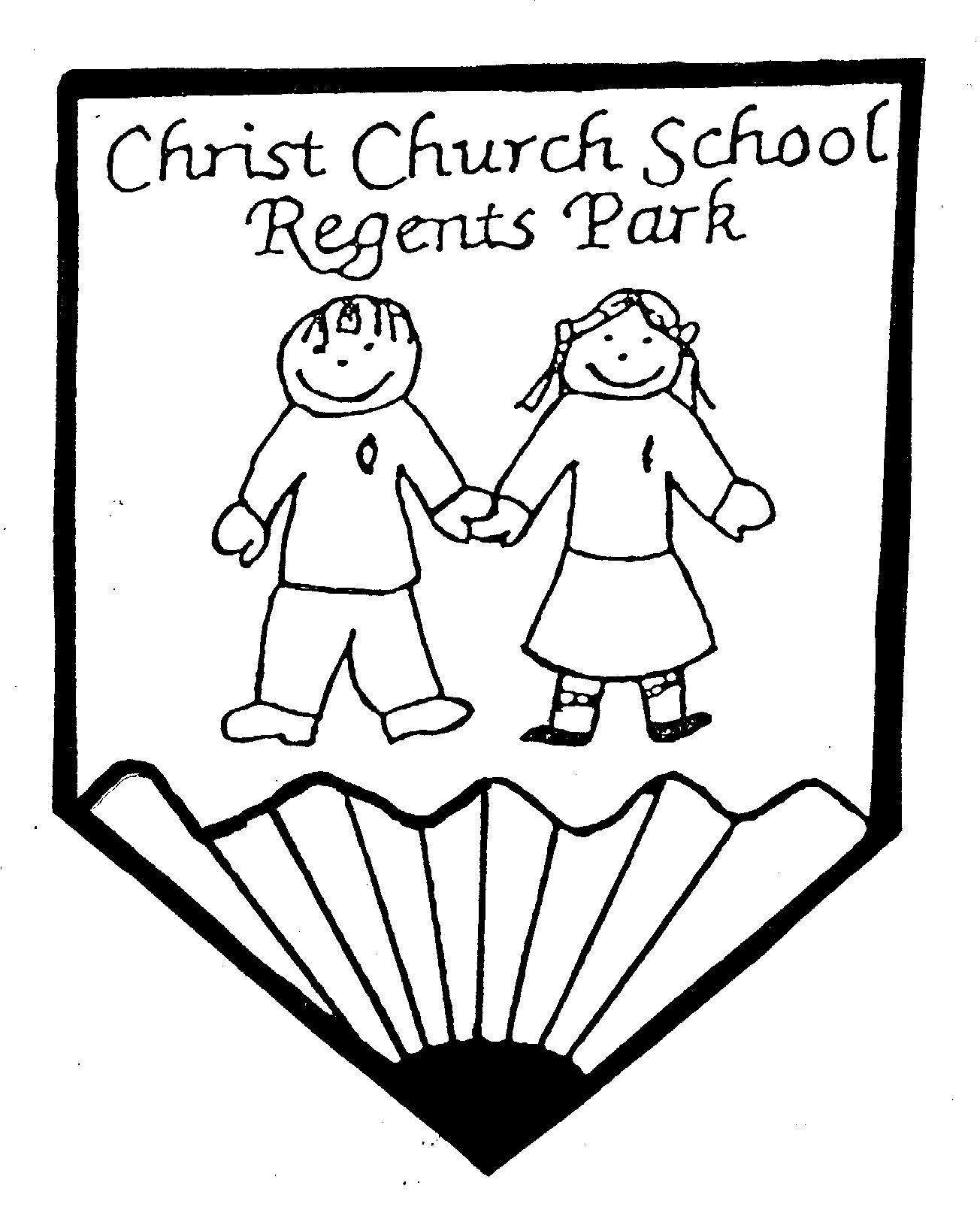Religious Education
The Christian faith is at the heart of our school community.
At Christ Church we all care, learn and work together for God and others.
‘For we are all God’s handiwork, created in Christ Jesus to do good works, which God prepared in advance for us to do’. Ephesians 2:10
Our Christian Values are
Creation, Community, Wisdom, Endurance, Thankfulness, Reconciliation
Intent
Along with the other subjects of the curriculum, RE aims:
- To provide opportunities for all pupils to learn and to achieve.
- To promote pupils’ spiritual, moral, social and cultural development and to prepare all pupils for the opportunities, responsibilities and experiences of the present and the future.
The LDBS Agreed Syllabus for Religious Education has four purposes, which are parallel to the four main purposes of the National Curriculum.
- To establish an entitlement: the Agreed Syllabus secures for all pupils, irrespective of social background, culture, race, religion, gender, differences in ability and disabilities, an entitlement to learning in Religious Education. This contributes to their developing knowledge, understanding, skills and attitudes, which are necessary for their personal fulfilment and development as active and responsible citizens.
- To establish standards: the Agreed Syllabus makes expectations for learning and attainment explicit to pupils, parents, teachers, governors, employers and the public, and establishes standards for the performance of all pupils in Religious Education. These standards may be used to set targets for improvement and measure progress towards those targets.
- To promote continuity and coherence: the Agreed Syllabus for Religious Education contributes to a coherent curriculum that promotes continuity. It facilitates the transition of pupils between schools and phases of education and can provide foundations for further study and lifelong learning.
- To promote public understanding: the Agreed Syllabus for Religious Education will increase public understanding of, and confidence in, the work of schools in RE.
The principle Intent of RE:
- To engage pupils in systematic enquiry into significant human questions which religion and worldviews address, so that they can develop the understanding and skills needed to appreciate and appraise varied responses to these questions as well as develop responses of their own.
We share our intent with the children using the following statement:
- In RE we are exploring big questions about life and finding out what people believe and what difference this makes to how they live. It’s a chance for you to think about your own ideas and beliefs too.
- We used the RE Agreed Syllabus for schools from the LDBS to design our curriculum. We ensure that our curriculum in its implementation is relevant to and enhanced by the school community and local area. We have strong links with the local church.
- Parents and carers are also involved in our RE learning and children are encouraged to share their beliefs and experiences with their peers and younger children.
Implementation
RE at Christ Church CoE School will be provided in line with the legal requirements:
- The basic curriculum will include provision for Religious Education for all pupils on the school roll.
- The content of RE shall reflect the fact that religious traditions in Great Britain are in the main Christian, while taking account of the teaching and practises of other principle religions.
- The RE provided is in accordance with the locally agreed syllabus from the LDBS.
Within the framework of the law and the Agreed Syllabus, our aims in RE are for pupils to:
- Acquire and develop knowledge and understanding of Christianity and the other principal religions represented in the United Kingdom.
- Develop an understanding of the influence of beliefs, values and traditions on individuals, communities, societies and cultures, from the local to the global.
- Develop the ability to make reasoned and informed judgements about religious and moral issues, with reference to the teachings of the principal religions represented in the UK.
- Enhance their spiritual, moral, social and cultural development by:
– developing awareness of the fundamental questions of life raised by human experiences and how religious teachings and beliefs can relate to them.
-responding to questions with reference to the teachings and practices of religions and other belief systems, relating them to their own understanding and experience.
– reflecting on their own beliefs, values and experiences in the light of their study.
- Develop positive attitudes of respect towards other people who hold views and beliefs different from their own, and towards a society of diverse religions and beliefs.
Time Allocation
The LDBS agreed syllabus recommends:
- EYFS- No particular time limits (expectation to teach RE at least 50% of the every half term with links to other areas of learning.)
- KS1-KS2- 58.5 hours per year (1 hour and a half/week)
At Christ Church CoE School, these timings are flexible over the terms and may be done as a lesson a week or a block of lessons.
Scheme of Work
We use ‘Big Questions’ to challenge and engage children to develop their communication and debating skills alongside their knowledge and to apply what they have learnt to their own lives.
Themes of Believing, Living and Expressing are explored. The ‘Big Questions’ link through different threads and are planned to build children’s knowledge and skills as they progress through each Key Stage. Through assessment we ensure that every child achieves their potential in RE; those few pupils who find learning in RE challenging (particularly around key concepts) are identified and supported as appropriate.
Children working at Greater Depth within RE are identified and are supported to deepen their learning through the use of challenging learning outcomes as suggested in the Syllabus.
Living and growing up in the world of the 21st century will challenge pupils and RE is important to help them make informed choices about how they want to live their lives whilst also understanding more about the faith of other people they meet. RE is relevant to all.
RE is based around half termly themes and is cross-curricular in some cases but not all.
At KS1 Christianity, Judaism and Islam are the main religions studied.
At KS2 pupils will continue to learn about these religions alongside those of Hinduism and Islam with Upper KS2 looking at an overview of all faiths. The objectives in the planning come from the LDBS agreed syllabus.
Teaching RE within the Curriculum
We have developed a bespoke RE curriculum, which meets the current needs of children at Christ Church. Through whole class teaching, children will learn about and from Christianity, Islam, Hinduism and Judaism through three key strands: BELIEVING, EXPRESSING and LIVING.
- BELIEVING- Religious beliefs, teachings, sources, questions about meaning, purpose and truth.
- EXPRESSING– Religious and spiritual forms of expression, questions about identity and diversity of God/Prayer/Festivals.
- LIVING– Religious practices and ways of living, questions about values and commitments.
In developing this curriculum, we have utilised components of published RE materials including the LDBS Syllabus, RE TODAY and NATRE resources to create the RE scheme of work, which also identifies links to British Values, Cultural Capital, SMSC and the school’s six Christian Values. This can be found on the school website.
The Teaching Sequence in RE
Every year group’s units of work must include:
- The Big Picture, what they will be learning and what they have been taught in previous year groups, to show how this builds upon their previous learning.
- A review to provide feedback and consolidation from previous learning, using a variety of teaching strategies.
- Realistic and relevant information.
- Specific key vocabulary and its meaning.
- Opportunities for the children to work interactively, using other curriculum areas e.g music, drama, art, with the teacher acting as the facilitator.
- Individual reflection on the learning.
In order for pupils to know more, remember more and do more in regards to RE, these aspects must be evident in the implementation of the RE curriculum throughout school.
Pedagogical Approaches to RE:
- Direct teacher instruction; modelling of skills and techniques; demonstration.
- Inquiry-based learning.
- Teacher modelling; questioning; mix of individual, paired and group instruction.
- Pupil-led learning; opportunities.
- Learning, working and talking about RE with confidence
Being introduced to the key vocabulary relating to RE so that all children can express their understanding, views and opinions.
Teaching and Learning Styles
We believe that children learn in different ways and to support this we provide a rich and varied learning environment to allow all learners to develop their skills and abilities to their full potential.
Through our teaching we aim to help each child become:
- An individual – thoughtful, creative and imaginative
- A cooperative person – someone who can form positive relationships and work as part of a team
- A whole person – responding to challenges, motivated and independent
- A responsible person – aware of others’ needs and diversity, questioning and understanding
We aim to ensure a variety of teaching and learning strategies in RE, including the use of art, drama, thinking skills, speaking and listening activities, visits, ICT use and other active learning strategies.
We offer children opportunities to develop in different ways. These include:
- Investigation and problem solving
- Research, finding out
- Paired work
- Group work
- Independent work
- Class work
- Opportunities to use ICT across the curriculum
- Visits and visitors to enrich the curriculum
- Debates, role play and oral presentation of work
- Hands on learning
- Learning outside the classroom
- Physical and kinaesthetic learning
Resources
Resources are stored in a cupboard outside the Year 4 classroom. These include books, religious artefacts, picture packs and posters. There are also electronic resources on the server. These are under Resources > RE. They are separated into year groups and into religions and are easily accessible.
Matching Work to Pupils’ Needs
Whole school policy with regard to special needs and differentiation applies to RE. We are sensitive to the fact that there are some children with different needs (e.g. no faith) that have clear boundaries for what they can and can’t join in with.
Assessment
We report on pupils’ progress and attainment in RE to parents in our Spring and annual reports. Teachers assess at the end of each unit using the assessment, using the descriptors from the LDBS assessment tool.
We track children’s progress through our Pupil Progress Review. This involves a discussion with SLT, RE Subject Leader and the class teacher; this is an opportunity to address barriers to learning but also to celebrate children’s achievements and progress.
Monitoring, Evaluation and Review
We intend that this policy and our schemes of work will operate for the next few years and will be reviewed as appropriate. The curriculum is regularly monitored by all staff, governors, the LDBS and Mother Sally (our local vicar) and evaluation carried out after each topic. The RE lead has also monitored planning and some lessons. The RE lead will maintain an active awareness of the subject through regular courses and network meetings.
Named Subject Leader: Sylvie Palany
Date Written: June 2020
Reviewed: January 2024
Here are some examples of our work in RE:



